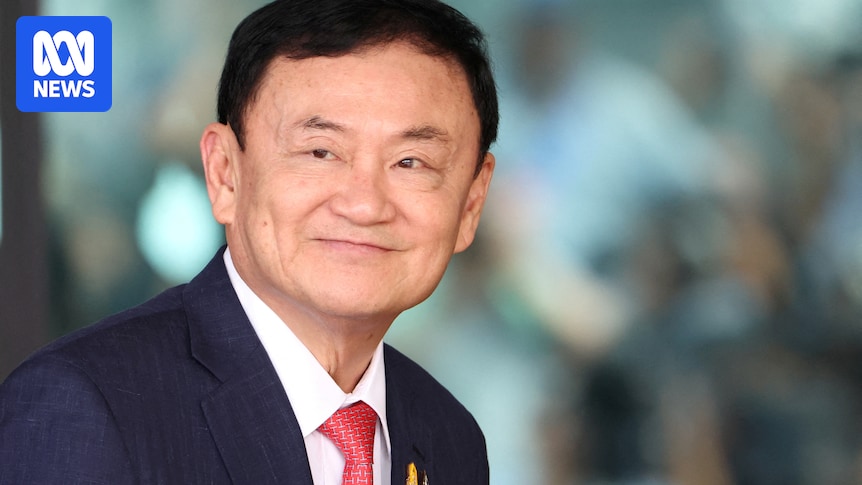
From being hailed as an “exiled martyr” to denounced as a “corrupt opportunist,” Thailand’s former Prime Minister Thaksin Shinawatra has been a polarizing figure for over 25 years. Now, the label “prison inmate” has been added to his complex legacy. The supreme court’s recent decision to enforce a one-year prison term marks a significant moment in Thai politics, as Thaksin becomes the first ex-premier to face jail time.
The ruling comes after Thaksin’s dramatic return to Thailand in 2023, ending 15 years of self-imposed exile following a military coup in 2006. Upon landing in Bangkok, he was immediately taken to prison to serve an eight-year sentence on charges of abuse of power and conflicts of interest from his time in office. However, his sentence was quickly reduced to one year by royal pardon, and he was released on parole after just six months.
On Tuesday, the supreme court declared his hospital stay unlawful, insisting he complete his one-year sentence. This decision underscores a dramatic fall from grace for a leader who once dominated Thai politics.
The Rise and Fall of Thaksin Shinawatra
Thaksin’s political journey began with a meteoric rise when he and his Thai Rak Thai party swept the elections in 2001 and 2006. His leadership emerged as a beacon of hope during the 1997 financial crisis, which had left the Democrat Party struggling to revive Thailand’s economy.
“Thaksin’s party branded itself as a force for change,” explained Napon Jatusripitak, a visiting fellow at the ISEAS — Yusof Ishak Institute in Singapore. “He delivered on promises of economic revival, introducing universal healthcare, debt relief, and policies that uplifted the working class and rural communities.”
“Throughout Thai history, there has been only one prime minister who has managed to complete a full term, and that’s Thaksin,” said Napon.
Thaksin’s ability to connect with the masses, especially the rural poor, solidified his image as a leader for the people. Siripan Nogsuan Sawasdee from Bangkok’s Chulalongkorn University noted, “He visited rural areas and spent time with the people, which reinforced his charisma and appeal.”
Military Coup and Political Turmoil
Despite his popularity, Thaksin’s reformist agenda alarmed military and political conservatives. His growing influence was perceived as a threat to traditional power structures, leading to a military coup in 2006 that ousted him from power. The army justified their actions by citing corruption and nepotism within his administration.
Since then, six Thai premiers connected to Thaksin have been removed by either military or judicial interventions, including his sister Yingluck and daughter Paetongtarn. This pattern of political disruption has cemented Thaksin’s party as a symbol of pro-democracy resistance.
“His party tended to win in landslides, yet they were often prevented from governing due to judicial or military actions,” Napon remarked. “These interruptions have only strengthened their status as a pro-democracy force.”
Thaksin’s Controversial Return
In 2023, Thaksin’s decision to ally with conservative forces for his return from exile was seen as a betrayal by his supporters. This strategic move, intended to maintain his influence, backfired and eroded the public support that had once made him a formidable political figure.
“Thaksin had to form a coalition with his former conservative adversaries, which amounted to a betrayal of his supporters’ electoral mandate,” Napon observed.
As a result, Thaksin’s political future appears uncertain. While Tuesday’s prison sentence could be seen as the final blow to his career, some analysts caution against underestimating his resilience.
The Unpredictable Nature of Thai Politics
Thailand’s political landscape is notoriously volatile, and Thaksin’s ability to orchestrate unexpected political maneuvers has kept observers guessing. “He has always been seen as a mastermind, capable of pulling off unthinkable moves,” Napon stated. “That’s why people remain fascinated by him.”
As Thaksin begins his prison term, the implications for Thai politics remain to be seen. His imprisonment might signal the end of an era, but in a country where political fortunes can change overnight, the possibility of his return cannot be entirely ruled out.
For now, the focus shifts to how his absence will reshape the political dynamics in Thailand and whether new leaders will emerge to fill the void left by one of the most influential figures in the nation’s recent history.





